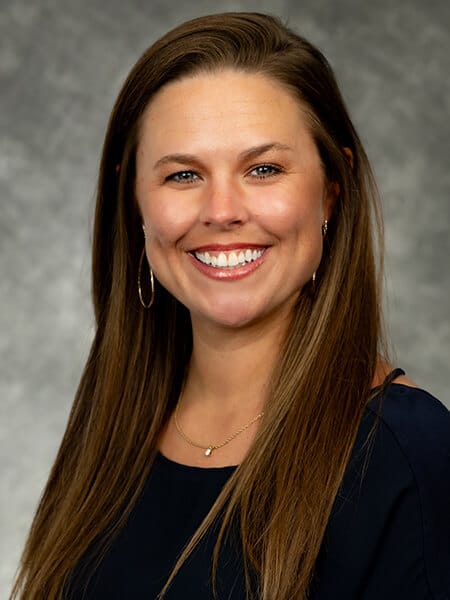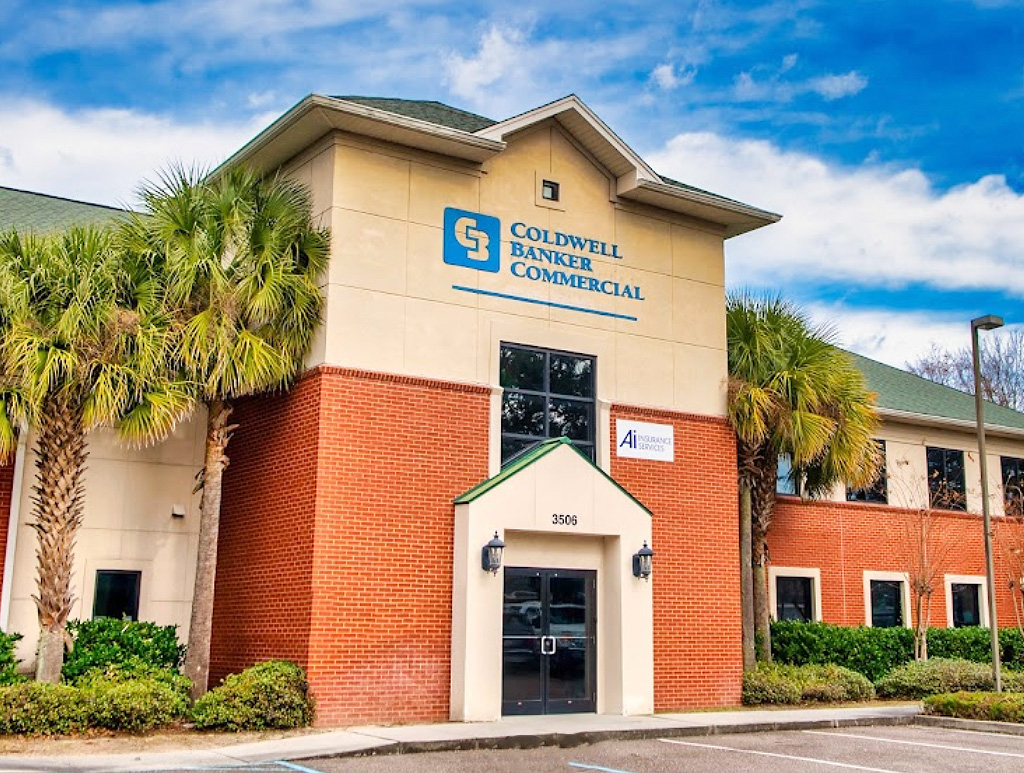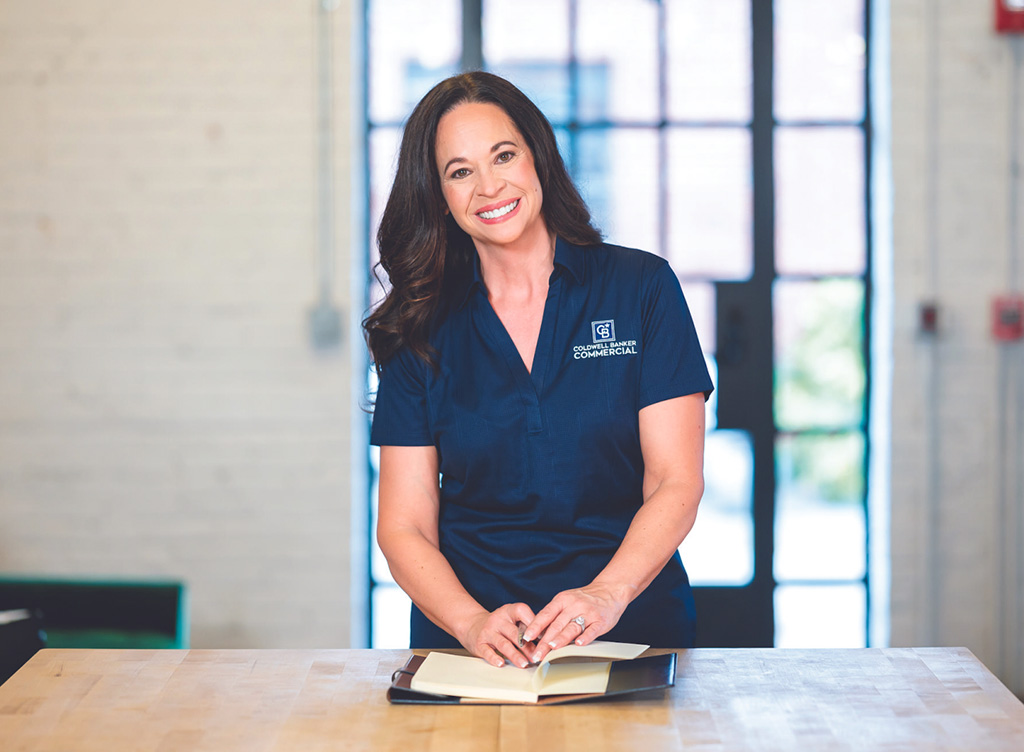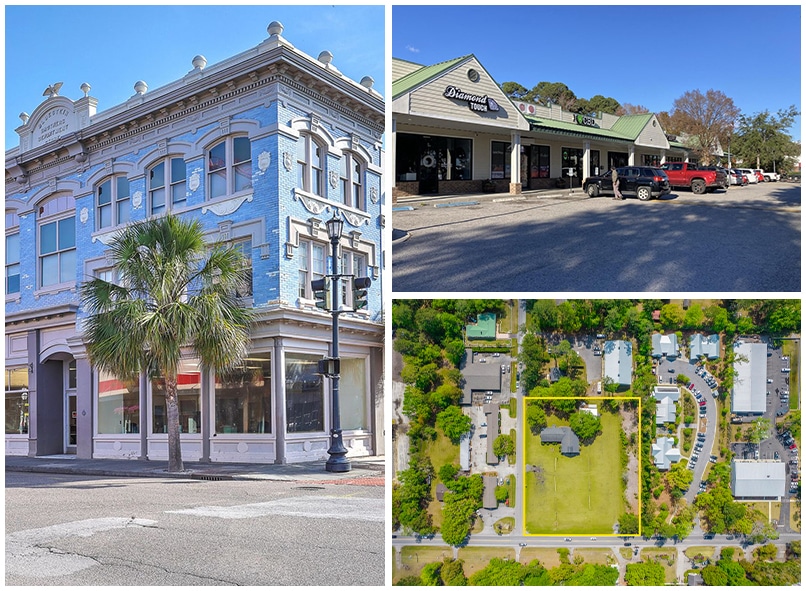

With an average of 230 days of sunshine each year, a low cost of living, and endless recreational activities, Charleston is a joy to call home. As the second most popular place to live in the U.S., metro Charleston is booming, not only with new residents but with new construction and property investment opportunities too. But with the Tri-County's rapid rate of growth comes increased real estate demand and complexity. That's especially true for commercial real estate transactions. According to CoStar, near-zero vacancy rates and short supply have forced rents and sales to reach record highs. At the same time, online medical and grocery purchases, along with last-mile delivery needs, have driven a new desire for industrial space.
It's safe to say that there is a lot of opportunity on the table for commercial real estate sellers and investors in South Carolina. But capitalizing on that opportunity without the proper market knowledge, relationships, or risk analysis can actually be counterproductive to your goals. That's where Coldwell Banker Commercial Atlantic's commercial real estate brokers in Charleston, SC, come into play.
As experts in the commercial real estate industry for more than 37 years, our brokerage provides the highest level of service to clients in today's rapid, constantly-changing business climate.
Service Areas
The Coldwell Banker Commercial Atlantic Difference
At Coldwell Banker Commercial, we pride ourselves on having local power and a global presence. Our clients entrust their complex and lucrative commercial real estate deals to us because they understand the value of working with brokers who are familiar faces within the community. On any given day, you could be standing next to one of our brokers at a grocery store or local restaurant. As your friends and neighbors, we're proud to call the Lowcountry home. Though we have local roots, our resources and expertise are backed by a global network. That power gives our commercial real estate clients peace of mind, knowing they have access to a dynamic and diversified brokerage of highly-trained and educated agents.

From general commercial leasing services and property management to investment guidance and new property site selection, our team works tirelessly to exceed your expectations and meet your goals. Whether you're looking to buy, sell, lease, or develop, our commercial real estate brokerage in Charleston, SC provides the up-to-date advice and time-tested market knowledge needed to facilitate any commercial real estate transaction, large or small.
Some of the commercial real estate specialties we focus on in South Carolina include:
- General Brokerage and Commercial Real Estate Leasing Services
- Commercial Investment Analysis
- Commercial Property Management
- Commercial Property Development
- Commercial Construction and Project Management
- Disposition, Acquisition, and Work-Out Properties
At the end of the day, our commercial brokers and agents aren't satisfied until you're a happy customer. That's why every service and decision we recommend is made with your best interests in mind.

Why Hire a Commercial Real Estate Broker in Charleston, SC?
Perhaps you're in a situation where you need more space for a growing business. Maybe, instead, you want to capitalize on low-interest rates and buy a commercial real estate investment property to bolster your portfolio. Whatever your needs may be, whether as an investor or a small business owner, your goals are probably the same: lock in the best value and negotiate optimal terms for leasing, buying, or selling. When it's all said and done, you want to minimize expenses and maximize your ROI.
Unfortunately, commercial real estate is complex by nature. Given today's ever-changing real estate landscape and the challenges of our economy, working with a commercial real estate agent is the savviest way to save money and lessen the likelihood of making a poor investment.
That's because the very best commercial real estate brokers, like those at Coldwell Banker Commercial Atlantic, do more than putting "for sale" signs in yards and in newspapers. They have the tools and training to source and present research apropos to your commercial real estate purchase or sale. They also have the ability to provide transaction and advisory services to ensure every aspect of your CRE process goes smoothly and efficiently. But we're getting ahead of ourselves. Here are a few of the biggest reasons to work with a commercial real estate broker in South Carolina.

Save Money
Unsurprisingly, money is one of the biggest reasons why people steer clear of CRE brokers - for the cost savings. Yet, just about every commercial real estate transaction is managed by a commercial real estate brokerage. Why might that be? The answer is that smart business owners, executives, and investors know that the most lucrative cost savings stem from good planning, time management, and successful negotiations. Only an experienced commercial real estate broker can provide you with those features while also properly structuring your commercial real estate deal.

Manage Your Time More Effectively
Commercial real estate investors and business owners often have jam-packed schedules with little time to spare for anything other than day-to-day operations. If that sounds familiar, you know how crucial time management is for commercial real estate. By working with a seasoned broker, you can uphold your daily responsibilities while they provide guidance and manage the minutia of your CRE dealings.

Access to Specialized Systems and Data
Reputable commercial real estate brokerages provide access to a bevy of information that is pertinent to your commercial real estate goals. We're talking vacancy and absorption rates, the latest sales price data, comparative labor and tax costs, and more. Your broker will help break down this information so that you can make the most informed decisions possible. Brokerages like Coldwell Banker Commercial Atlantic also have systems and software to facilitate complex real estate processes while eliminating unneeded costs. The combination of accumulated data and exclusive systems results in a more cost-effective, efficient way to meet your real estate requirements on terms that are beneficial to you.

Years of Success and Experience
As is the case with most things in life, practice and repetition are essential in honing skills and achieving business success. The truth is that no amount of money or "how to" articles can suffice for decades of real-world, hands-on experience. Sure, you can find a litany of commercial real estate info online. But those articles won't teach you about navigating the nuances of structuring advantageous purchase terms or completing complicated due diligence tasks. A successful commercial real estate broker in Charleston, SC, will have no problem executing these often-confusing processes because they've done it dozens and dozens of times before. This priceless experience is your best resource for successful commercial real estate initiatives.

Service Integration
One of the biggest advantages of working with a commercial real estate brokerage is their ability to provide necessary services that are relevant to your real estate needs. As a Coldwell Banker Commercial affiliate, we are part of a network that allows us access to accounting, legal, and other services needed on your real estate journey. Finding and vetting these services can be very costly and time-consuming, which is unneeded stress that we're happy to remove from your plate.

Purposeful and Engaging Marketing
For any project to be successful, a strategic marketing plan must be implemented to achieve the desired results for our clients. The methods of exposing and promoting a property must be creative, innovative, and unique to your property. At Coldwell Banker Commercial Atlantic, we utilize the most effective methods that make sense for your property in South Carolina, including:
- Print Materials
- Digital Marketing
- Design Renderings
- Photography
- Weekly and Monthly Advertising
- Affiliation Marketing
- Signage
- More

Negotiating Acumen
If you're reading this page, chances are you're successful to some degree and have entered negotiations a time or two in your professional life. While that's nothing to sneeze at, the art of negotiating in the commercial real estate industry is a skill that must be honed over years of transactions. In the world of CRE, transaction negotiations are often time-consuming and stressful - two things you don't need in your life. Your commercial real estate broker will use their experience to relieve you of that stress so that you can focus on growing your business or serving tenants.

Knowledge of Local Markets
One of the most valuable reasons for working with a commercial real estate brokerage is that staff have a deep understanding of South Carolina's real estate market. In the Lowcountry, trends and market conditions are constantly changing. Opportunities are lost and found daily.
With this market knowledge, your commercial real estate broker in Charleston, SC, can provide an easy-to-understand analysis of various commercial properties within your budget. They'll know what relevant properties are leased or sold for and how much. Savvy commercial real estate brokers are also always informed on local demographics and market indicators that impact your commercial real estate goals. For instance, with COVID becoming a more accepted part of our lives, leasing, and sales in retail have taken off, especially for Class A and Class B centers.
Brief Overview A Brief Overview of Our Specialties
At Coldwell Banker Commercial Atlantic, we specialize in several commercial real estate services. Though each service is comprehensive and will differ for each client, here is a brief overview to help you understand the scope of our abilities.

General Brokerage and Leasing Services
We're proud to say that our commercial real estate brokers in Charleston, SC, are equipped with all the necessary skills and traits to make your life easier. From transactional needs to marketing strategies, our experience and market knowledge is second to none, allowing us to ensure your success in today's market.

Property Management
In an ever-changing commercial real estate industry, our approach to property management is constantly evolving. Our team has extensive experience in commercial real estate management and recognizes its importance as a foundation for long-term value and wealth. As such, Coldwell Banker Commercial Atlantic provides tailor-made property management packages that meet your specific assets needs and objectives.

Project and Construction Management
Whether you're entering a build-to-suite or remodeling a commercial property, our associates are ready to represent you with facility planning, design, construction, zoning restrictions, and so much more. If you're looking for a brokerage that can guide you through every step of the construction process with your goals and budget at heart, look no further than Coldwell Banker Commercial Atlantic.

Investment Analysis
Coldwell Banker Commercial Atlantic provides comprehensive investment analytics to better evaluate potential investments and increase return on those investments. Additionally, our team can facilitate single or multiple-location transactions and also find alternative financing recommendations if needed.

Property Development
From selecting the perfect building site for your property to overseeing its initial construction, our associates provide experience and expertise when you need it most, covering every step and service of property development. If needed, our team can assemble the right professionals to ensure your property is developed to your unique specifications and applicable regulatory standards.

Acquisition, Disposition, and Work-Out Properties
Our commercial real estate brokerage represents clients in both the disposition and acquisition of property and works directly with you to determine your needs. We then strive to improve efficiency and reduce costs. We also assist financial institutions and government agencies in the management and disposition of ‘troubled properties.' Our firm incorporates its spectrum of services to efficiently turn these properties around and improve their value for ultimate disposition.

Time-Tested Tips for Commercial Real Estate Investing
If you're just getting started in commercial real estate investing, you're probably searching for reliable advice and best practices to follow. While hands-on experience and guidance from a commercial real estate broker are always best, a little advice never hurts. After all, there's a wide world of opportunity out there. As you begin to build a more robust portfolio, keep these tips and tricks in mind.

Take Your Time
Commercial real estate deals can take a lot longer than traditional single-family transactions. That's true throughout the entire process, from purchase, to renovation, to selling. That's not a bad thing - after all, having impatience is a good way to rush into a poor decision. Instead of a means to quick cash, think of commercial real estate deals as a large bonus or as a vehicle for retirement.

Keep an Open Mind
Many commercial real estate investors jump right into the multi-family property space. However, it's essential to keep other types of properties in mind, such as mobile homes, office buildings, land, and even mobile home parks. Forget about your comfort zone. Instead, weigh your options and choose a niche that helps you meet your goals.

Search for Great Financing Before Making Offers
Commercial loans are quite different than their residential counterparts. In some ways, they're better. Though down payments are typically higher, meaning you'll put more down, there's often no personal liability involved. Plus, commercial loans can be more forgiving when borrowing money for down payments. The bottom line is to search for the best lenders before making an offer. If you're having trouble, ask your commercial real estate broker for assistance, as they often have connections and partnerships with relevant entities.

Learn the Appropriate Formulas
If you're used to buying residential homes, you're probably familiar with some formulas, such as buying 75% of after-repaired value minus the estimated cost of repairs. Depending on the type of commercial property you're buying or selling, you'll have different formulas to learn. Two examples are Cap Rates and Net Operating Income. Learning these formulas can be very beneficial when making an offer.

Lean On Your Commercial Real Estate Agent in Charleston, SC
If you find yourself discouraged with the commercial real estate game, remember that the team at your commercial real estate brokerage is there to make your life easier. At Coldwell Banker Commercial Atlantic, we have a powerful brokerage with a team of over 20 highly skilled and educated agents. Our job is to serve you, whether you're a new investor looking for your first deal or an experienced property owner looking for 1031 tax investment advice.

REQUEST CONSULTATION
Latest News in Charleston, SC
Blackbaud data breach could result in class action lawsuit
Melissa Rademakerhttps://www.live5news.com/2024/03/08/blackbaud-data-breach-could-result-class-action-lawsuit/
DANIEL ISLAND, S.C. (WCSC) - Charleston-based software company Blackbaud remains under fire for a security breach that affected about a third of their clients and opened up more than a million files with sensitive data to hackers.Nearly four years after the breach, a legal team at least 12 people deep represents clients of Blackbaud who want to file a class action lawsuit against the company for what it calls lax security and handling of the breach.For days, lawyers hashed out the details in federal court. Certain requirements ...
DANIEL ISLAND, S.C. (WCSC) - Charleston-based software company Blackbaud remains under fire for a security breach that affected about a third of their clients and opened up more than a million files with sensitive data to hackers.
Nearly four years after the breach, a legal team at least 12 people deep represents clients of Blackbaud who want to file a class action lawsuit against the company for what it calls lax security and handling of the breach.
For days, lawyers hashed out the details in federal court. Certain requirements must be met before filing a class action, and that’s what each side made their case for. Blackbaud hopes to avoid a large lawsuit, and lawyers for the businesses with lost data, made their case that this is too big to ignore with lasting impacts.
Blackbaud is a company that sells software to other companies, which can use it to store information about customers. Blackbaud sells mostly to companies with a focus on social change, including non-profits, animal shelters, health clinics and schools.
Customers at those companies share information with the site. Everything from addresses, emails, credit card information, social security numbers and health information with the promise their data is being protected by Blackbaud software.
But, in May of 2020, Blackbaud said a hacker entered Blackbaud’s server, accessing information for 13,000 companies for three months undetected. Lawyers on behalf of the companies who paid to store this sensitive data with Blackbaud claim Blackbaud is playing down the situation.
Blackbaud discovered the breach in May of 2020 and alerted their customers in July of 2020. Blackbaud’s own investigation showed the breach allowed access to over a million files concerning over 13,000 of Blackbaud’s customer companies.
Lawyers for the victims say Blackbaud had security issues and knew it, making them negligent and responsible for the hack. They point out that Blackbaud had “sticky keys” on since, had no policy for encryption, did not use multi-factor authentication to get into their servers, and no policy for scanning for issues or a plan to fix those holes in the software.
Most of those issues were acknowledged by Blackbaud’s own chief information security officer in 2019. The officer has sent correspondence across the company noting these issues needed to get addressed and said the company was eight to 10 years behind in terms of security.
The company has already settled a lawsuit with attorneys-general for 49 US states for $49.5 million, South Carolina Attorney General Alan Wilson included. Blackbaud has been fined by the FTC and SEC for their lax security as well. Blackbaud faces ongoing litigation from the attorney general of California.
Blackbaud argues that while this breach happened, they appropriately communicated with their business clients about the breach and offered templates to those businesses for how to tell their customers about the breach as well.
Blackbaud does not argue that the breach did not happen but is opposing a class action. They say their services are too diverse and customizable so the companies affected had immensely different impacts that under the law should not be lumped into a class action.
Blackbaud says their software services range from accounting and fundraising to marketing. In that vein, each client company had the opportunity to pick and choose what software they used and what information to input into the software. Some people input names and email addresses only, while others entered social security numbers and health testing data.
Federal Judge Joseph Anderson has the task of deciding whether the victims of the hack should be able to sue the company in one event.
Copyright 2024 WCSC. All rights reserved.
Cafeteria manager serves up meals, smiles and kindness
musc.eduhttps://web.musc.edu/about/news-center/2024/03/08/cafeteria-manager-serves-up-meals-smiles-and-kindness
This is part of MUSC's 2024 Women's History Month series. For more coverage, please see links at the bottom of this story.At only 4 feet, 9.5 inches tall, Julia Skinner is small in size but larger than life, judging by the impact she has on everyone around her.Skinner has worked in MUSC Health Kershaw Medical Center’s cafeteria for 28 years, now serving as the manager. In her job, she feeds the staff and patients’ loved ones, while also delivering smiles and comfort.Skinner’s culinary career began at ...
This is part of MUSC's 2024 Women's History Month series. For more coverage, please see links at the bottom of this story.
At only 4 feet, 9.5 inches tall, Julia Skinner is small in size but larger than life, judging by the impact she has on everyone around her.
Skinner has worked in MUSC Health Kershaw Medical Center’s cafeteria for 28 years, now serving as the manager. In her job, she feeds the staff and patients’ loved ones, while also delivering smiles and comfort.
Skinner’s culinary career began at about age 8. “My mama started me off cooking eggs,” she said. These days, she makes fried chicken for family and friends every Sunday, along with some of her other favorite dishes, like barbecue ribs and macaroni and cheese. And, of course, she prepares meals at the hospital.
“I feel like it was God’s gift to be in the cafeteria,” she said. “I love blessing others.”
Skinner does just that with every interaction she has, whether it’s simply kindly greeting someone, carrying someone’s tray to his or her table or offering emotional support.
“I have shed so many tears in that hospital,” she said. “Because when a family member hurts, I hurt.” To Skinner, everyone is family.
She recalled one particularly poignant time she felt called to help a customer — an elderly man whose wife was a patient. “I had to show him love and pray for him in the line,” she said. While they were praying together, the man’s wife passed away.
During anyone’s difficult time, “I let them know someone cares,” she said.
Her friend and colleague Maria Cunningham has witnessed and experienced Skinner’s caring spirit personally. “Julia has a very warm embrace and contagious smile,” Cunningham said. “She meets no stranger.”
Cunningham has known Skinner since 2012, when Cunningham worked in patient registration at Kershaw. She now is the program coordinator for all of the Kershaw physician clinics.
Although the two women don’t see each other every day anymore, Cunningham said, “Once you meet Julia for the first time, she will remember you for a lifetime.”
It likely goes both ways, especially considering that Skinner’s kindness extends beyond the cafeteria walls.
She volunteers for Food for the Soul, an organization in Camden that provides food and shelter for people in need, cooking Thanksgiving feasts and other meals. Skinner’s involvement inspired Cunningham not only to join her as a volunteer but also to become a board member of the organization.
Skinner doesn’t limit her giving back to food-related charities. She takes the initiative to ensure everyone in the community is taken care of.
Cunningham shared that last year, Skinner asked Jackson School guidance counselors how she could best help their elementary schoolers.
“Some children were in desperate need of coats and shoes,” Cunningham said.
Skinner wasted no time in solving this issue and set up a clothing drive, reaching out to coworkers, friends and neighbors to donate the requested items. Almost like Santa Claus himself, she delivered the coats and shoes to the school right before the Christmas break.
Back at the hospital, Skinner brought her special touch to the holidays in the form of a gingerbread house decorating contest. Cunningham was touched when Skinner set aside a house for Cunningham’s department to embellish.
“She was just beyond herself when I went to bring her the gingerbread house we had done as a department,” Cunningham said.
Skinner made the entire event a festive spectacle, featuring the houses prominently in the cafeteria and going live on Facebook to show them off to everyone.
“She really takes a lot of pride and joy in everything she does,” Cunningham said.
Skinner’s unique energy even influences busy hospital staff to skip the self-checkout. “Everyone wants to get in line to see Miss Julia,” she said.
It should come as no surprise, then, that she still has a passion for her career. “After 28 years at the same job, you love what you do,” declared Skinner.
Cunningham feels lucky to have crossed paths with Skinner 12 years ago at Kershaw Medical Center.
“She is truly a blessing to all of us whose lives she has touched,” Cunningham said.
For pediatric palliative care nurse practitioner Aminah Fraser-Rahim, practicing empathy and patience are critical parts of her approach to care. In the rural expanse of Orangeburg, Calhoun and Bamberg counties, two remarkable women are spearheading a movement for health equity After more than 55 years on the job, cafeteria worker is still cooking.
Get the Latest MUSC News
Get more stories about what's happening at MUSC, delivered straight to your inbox.
UNC Asheville vs. Charleston Southern Game Info
Data Skrivehttps://www.wdam.com/sports/betting/2024/03/08/unc-asheville-charleston-southern-college-basketball-live-stream-tv-big-south-tournament/
The No. 2 seed UNC Asheville Bulldogs (20-11, 12-4 Big South) will square off against the No. 7 seed Charleston Southern Buccaneers (10-19, 6-10 Big South) in the Big South Tournament Friday at Nido and Mariana Qubein Arena, beginning at 6:00 PM ET.Catch tons of live college basketball, plus original programming, with ESPN+ or the Disney Bundle.Get tickets for any college...
The No. 2 seed UNC Asheville Bulldogs (20-11, 12-4 Big South) will square off against the No. 7 seed Charleston Southern Buccaneers (10-19, 6-10 Big South) in the Big South Tournament Friday at Nido and Mariana Qubein Arena, beginning at 6:00 PM ET.
Catch tons of live college basketball, plus original programming, with ESPN+ or the Disney Bundle.
Get tickets for any college basketball game this season at Ticketmaster!
How to Watch Top 25 Games
UNC Asheville Stats Insights
Charleston Southern Stats Insights
UNC Asheville Home & Away Comparison
Charleston Southern Home & Away Comparison
Rep your team with officially licensed college basketball gear! Head to Fanatics to find jerseys, shirts, and much more.
UNC Asheville Upcoming Schedule
| Date | Opponent | Score | Arena |
|---|---|---|---|
| 2/21/2024 | @ Longwood | L 80-75 | Joan Perry Brock Center |
| 2/24/2024 | Gardner-Webb | L 78-77 | Kimmel Arena |
| 3/2/2024 | @ Radford | W 71-62 | Dedmon Center |
| 3/8/2024 | Charleston Southern | - | Nido and Mariana Qubein Arena |
Charleston Southern Upcoming Schedule
| Date | Opponent | Score | Arena |
|---|---|---|---|
| 2/24/2024 | High Point | L 74-59 | The Buc Dome |
| 2/28/2024 | Radford | W 58-57 | The Buc Dome |
| 3/2/2024 | @ Presbyterian | L 72-65 | Templeton Physical Education Center |
| 3/8/2024 | UNC Asheville | - | Nido and Mariana Qubein Arena |
© 2023 Data Skrive. All rights reserved.
Broadway musical coming to Charleston reimagines Henry VIII's wives as feminist pop stars
Chelsea Grinstead Special to The Post and Courierhttps://www.postandcourier.com/charleston_scene/broadway-musical-six-north-charleston/article_0c679ec0-dc0b-11ee-91e3-f33c99749d53.html
“No matter what you’ve gone through, you have the ability to empower yourself and rewrite your story and move forward” — these are words of wisdom from a principal performer in the trailblazing musical “SIX.”“SIX” will grace the North Charleston Performing Arts Center with eight performances from March 12-17.The critically acclaimed Broadway musical reimagines the stories of the six wives of Henry VIII from a modern, feminist point of view. Each female character in “SIX&rdqu...
“No matter what you’ve gone through, you have the ability to empower yourself and rewrite your story and move forward” — these are words of wisdom from a principal performer in the trailblazing musical “SIX.”
“SIX” will grace the North Charleston Performing Arts Center with eight performances from March 12-17.
The critically acclaimed Broadway musical reimagines the stories of the six wives of Henry VIII from a modern, feminist point of view. Each female character in “SIX” reclaims her historical narrative, asserting her individuality and unveiling her strength alongside her struggle.
“It’s really beautiful what this show does because every woman has the chance to tell their story from their perspective — what they really went through, not just what some male historian wrote down,” said Gerianne Pérez, who plays the role of Henry VIII’s first wife, Catherine of Aragon.
The show, created by Toby Marlow and Lucy Moss, infuses historical storytelling with an exhilarating pop score and enthralling choreography.
Set as a concert-style performance, “SIX” invites the audience to join the wives as they compete for the title of the “queen who suffered the most.” The wives confront issues of love, power, betrayal and sisterhood with their evocative songs while challenging the stereotypes that have cast them as inferior or pitiable.
“The show allows the six women on stage to retell their heart-wrenching stories from an empowered perspective,” Pérez told The Post and Courier.
Each of King Henry VIII’s six wives takes center stage to tell her own story through solo performances and ensemble numbers, demonstrating agency and resilience amid trauma. In addition to Pérez as Catherine of Aragon, the cast features Zan Berube as Anne Boleyn, Amina Faye as Jane Seymour, Terica Marie as Anna of Cleves, Aline Mayagoitia as Katherine Howard and Courtney Mack as Catherine Parr.
Pérez said the show’s stripped-down format contributes to the broader landscape of musical theater with its alternative take on traditional Broadway.
“It’s just the six of us on stage,” she said. “We have no grand spectacle. It’s completely story-based. And I think that format is unique. Maybe it’ll inspire people to do different forms of theater and break the mold of what’s to be expected when you enter a Broadway house.”
To Pérez, “SIX” is a phenomenon along the lines of “Hamilton.”
“It contributes in a similar way that ‘Hamilton’ did — taking history and making it correct with a soundtrack that people want to listen to (that is) not the iconic Broadway sound with tap dances,” she said. “It’s really stuff that is inspired by the artists of today.”
The portrayal of each wife is shaped by “queen-spirations,” Pérez said, with each performer channeling characteristics of well-known pop icons.
Catherine of Aragon takes direction from Jennifer Lopez, Shakira and Beyoncé, she said. Anne Boleyn is in the realm of Avril Lavigne and Pink! Jane Seymour is from the Adele and Yebba sphere. Anna of Cleves is inspired by Nicki Minaj and Megan Thee Stallion. Katherine Howard is modeled after Britney Spears and Ariana Grande.
“And last, but not least, we have Catherine Parr, who’s a bit more in the Alicia Keys world,” she added.
Audience members will be hard-pressed to leave without feeling more rejuvenated than when they arrived, she said, no matter what their personal background or preferences are.
“People come in with a set of expectations, and I really like to think that we subvert those expectations,” Pérez said. “So just come in ready to have a good time with an open mind. You don’t need to have any historical basis to understand these women. We will give it all to you on a silver platter.”
Get a weekly list of tips on pop-ups, last minute tickets and little-known experiences hand-selected by our newsroom in your inbox each Thursday.
How to watch Mercer Bears vs. The Citadel Bulldogs: NCAA Basketball live stream info, TV channel, start time, game odds
Scout Staffhttps://www.cbssports.com/college-basketball/news/how-to-watch-mercer-bears-vs-the-citadel-bulldogs-ncaa-basketball-live-stream-info-tv-channel-start-time-game-29344450/
The Citadel Bulldogs @ Mercer BearsCurrent Records: The Citadel 11-20, Mercer 15-16The Citadel is 2-8 against Mercer since February of 2020 but they'll have a chance to close the gap a little bit on Friday. The Citadel Bulldogs and the Mercer Bears are set to clash at 5:00 p.m. ET at Harrah's Cherokee Center in a Southern postseason contest. The Citadel is no doubt hoping to put an end to a nine-game streak of away losses.Last Saturday, the Bulldogs came up short against the Bulldogs and fell 92-80. The defeat unfortunat...
The Citadel Bulldogs @ Mercer Bears
Current Records: The Citadel 11-20, Mercer 15-16
The Citadel is 2-8 against Mercer since February of 2020 but they'll have a chance to close the gap a little bit on Friday. The Citadel Bulldogs and the Mercer Bears are set to clash at 5:00 p.m. ET at Harrah's Cherokee Center in a Southern postseason contest. The Citadel is no doubt hoping to put an end to a nine-game streak of away losses.
Last Saturday, the Bulldogs came up short against the Bulldogs and fell 92-80. The defeat unfortunately continues a disappointing trend for The Citadel in their matchups with Samford: they've now lost five in a row.
Even though Mercer has not done well against Furman recently (they were 1-9 in their previous ten matchups), they didn't let the past get in their way on Saturday. The Bears walked away with an 82-75 win over the Paladins. Winning is a bit easier when your three-point shooting is a whole 34.3% better than the opposition, as Mercer's was.
The Bulldogs have traveled a rocky road recently having lost 15 of their last 18 matches, which put a noticeable dent in their 11-20 record this season. As for the Bears, they are on a roll lately: they've won four of their last five matches, which provided a massive bump to their 15-16 record this season.
The Citadel is hoping to beat the odds on Friday, as the experts think they're headed for a loss. For those looking to play the spread, keep The Citadel's opponent in mind: they have a subpar 2-7 record against the spread vs Mercer over their last nine matchups.
The Citadel came up short against Mercer in their previous matchup back in February, falling 87-78. Can The Citadel avenge their loss or is history doomed to repeat itself? We'll find out soon enough.
Mercer is a 4-point favorite against The Citadel, according to the latest college basketball odds.
The oddsmakers were right in line with the betting community on this one, as the game opened as a 4-point spread, and stayed right there.
The over/under is 138 points.
See college basketball picks for every single game, including this one, from SportsLine's advanced computer model. Get picks now.
Mercer has won 8 out of their last 10 games against The Citadel.
Disclaimer:

 843-744-9877
843-744-9877